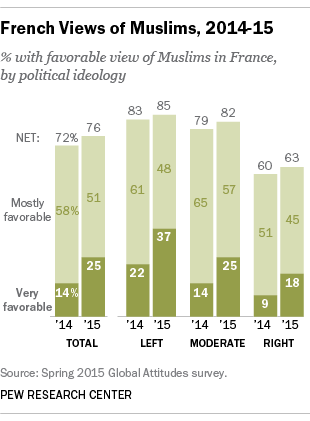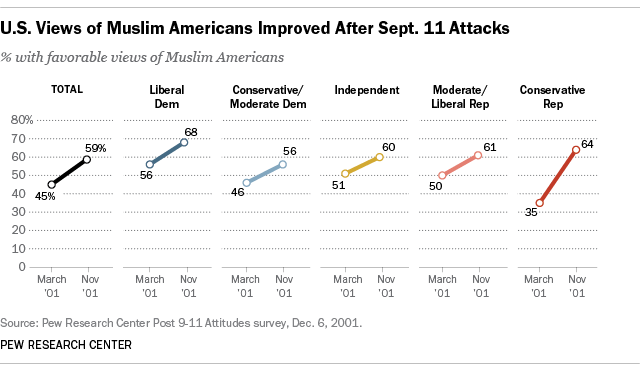ETA: I’ve got to find a new source for the video.
The Prisoner’s Dilemma is a game theory experiment that explores the conditions under which people cooperate or defect against each other. I assume you are already familiar with the details.
In a single game of the Prisoner’s Dilemma, defection or cooperation depends a lot on the folks involved’s individual personalities, but in multi-iteration games (games where people play multiple times against each other,) cooperators generally punish defectors, which eventually leads to mutual cooperation–the best outcome.
One of the implications of this finding is that people will cooperate more with people they’ve had (and will have) repeated interactions with than with strangers. I learned this the hard way when I went from playing board games with my highschool friends to playing with a group of strangers, and promptly got defected on in a plan to split the profits from Broadway and Park Place. The whole business sounds silly in retrospect, but believe me, if I had ever encountered this person again, I would have defected–hard–against them.
Punishing defectors leads to a stable system of mutual, beneficial cooperation.
But in when experimenters took the multi-iteration prisoner’s dilemma abroad, they discovered an unexpected (to them) behavior: cooperation-punishing. These are people who defect against cooperators, leading to mutual defection. Mutual defection is also stable, but shitty.
Cynically, we might say that this is less about “punishment” as that the cooperation-punishers smelled a sucker and decided to benefit themselves. They may also have been unable to realize that their opponent would probably change their behavior in response to the initial defection due to insufficient ability to model other people’s thought processes, and so simply continued doing the thing that had worked once, even once it stopped working. (IE, they were dumb.) As a practical matter, though, we can refer to this as “punishing cooperators,” since that is the result.
Societies with smart people should converge on mutual cooperation; societies with dumb people converge on mutual defection.
What happen when these two styles meet, and people from societies where defectors-get-punished meet people from societies where cooperators-get-punished?
In an actual prisoner’s dilemma experiment, it is of course obvious whether you cooperated or not, but let’s think about this in the much fuzzier terms of normal human human interactions, where there is far more debate and uncertainty about intentions (and effects.) If, in the normal course of your daily life, most people cooperate and defectors are defected against, and then suddenly someone starts defecting against you, your first response may be to soul-searchingly examine whether you did something to cause the defection. For example, suppose you are part of a social group that normally eats dinner at each other’s houses once a week, and suddenly one week, someone doesn’t invite you to their gathering. A reasonable response would be to ask yourself, “Did I do something to piss them off?”
Many of the most liberal people I know seem completely incapable of figuring out, on an instinctual level, whether or not they are being taken advantage. They get hurt and say something like, “I don’t want to abandon my faith in humanity,” or they try to “examine their privilege” even harder. It is painful to watch; sometimes I just want to yell, “It is okay to hate people who have hurt you!”
There’s a saying that a conservative is a liberal who’s been mugged. What’s the word for a person who’s been mugged and is still a liberal?
Last weekend, my housemate and I were mugged at gunpoint while walking home from Dupont Circle. T
… when a reporter asked whether I was surprised that this happened in Georgetown, I immediately answered: “Not at all.” It was so clear to me that we live in the most privileged neighborhood within a city that has historically been, and continues to be, harshly unequal. …
What has been most startling to me, even more so than the incident itself, have been the reactions I’ve gotten. I kept hearing “thugs,” “criminals” and “bad people.” While I understand why one might jump to that conclusion, I don’t think this is fair.
Not once did I consider our attackers to be “bad people.” I trust that they weren’t trying to hurt me. In fact, if they knew me, I bet they’d think I was okay.
One of my friends was homeless for 20 years and never mugged anyone. I know people who have been reduced to shoplifting food because they did not have any, but still never pulled a gun on anyone, broke into their house, threatened someone, or stole from them.
Poverty does not make good people rob others at gunpoint. This is bullshit, and an insult to all of the people who have endured poverty without hurting others.
I have not been able to write about the Paris Attacks and their fallout since they happened, mostly because I try not to write posts that look like this: DJGGGYWEEERRRRRRRRK!!!111!!
But I came upon this graph today, of French attitudes toward Muslims before and after the Charlie Hebdo attacks:

I regret that I do not have more recent data from France, but I do have some from America:

Take a look at those conservatives!
Forget about “It’s better to be feared than loved.” Apparently being feared makes you loved.
To be fair, I have noticed a habit among certain people to delicately start a sentence, “Now, I like Muslims, but…” or “I like blacks, but…” which may be driving some of this. Anti-racism has become such a dominant value that even conservatives cannot express the pain and horror they felt from 9-11 without first throwing out an anti-racist disclaimer (not that it works, of course. They are always guilty of racism, no matter what they say.)
When the Japanese bombed Pearl Harbor, did anyone feel the need to stand around, declaring, “I’m not anti-Japanese, but…” ?
The mere idea of having a single blanket encapsulation of 1.6 billion people–1/5th of the world’s population–is idiotic. I reject the question. I have no opinion of Nigerians that applies equally to Bosnians, nor of Kazakhs that applies to Indonesians. Likewise, I have no opinion of Christians that covers Haitians, Norwegians, and Ugandans; Mormons and Eastern Orthodox; no single coherent opinion of Hindus, Buddhists, or Jews. But I have very strong opinions about the people I consider my enemies.
According to Newsweek (8-26-14):
One in six French citizens sympathises with the Islamist militant group ISIS, also known as Islamic State, a poll released this week found.
The poll of European attitudes towards the group, carried out by ICM for Russian news agency Rossiya Segodnya, revealed that 16% of French citizens have a positive opinion of ISIS. This percentage increases among younger respondents, spiking at 27% for those aged 18-24. …
Newsweek’s France Correspondent, Anne-Elizabeth Moutet, was unsurprised by the news. “This is the ideology of young French Muslims from immigrant backgrounds,” she said, “unemployed to the tune of 40%, who’ve been deluged by satellite TV and internet propaganda.” She pointed to a correlation between support for ISIS and rising anti-Semitism in France, adding that “these are the same people who torch synagogues”.
In lieu of the video that was supposed to be here, let’s just say that I think ISIS is pretty darn evil.
I’ve spent a very little time around people who punish cooperators, and it appeared to me that they seemed to regard cooperation with strangers as “stupid”: The action of an unmanly loser who ought to be ashamed of himself for cooperating with people who wouldn’t reciprocate. Such “stupid” cooperation is a defection against family and close lifelong friends. You waste shared resources and expose them to ridicule: Their boy is a sucker.
They think they’re doing you a favor by teaching you how the world “really works”.
LikeLiked by 1 person
My condolences. That must have been an “educational” experience. Thanks for sharing your insight.
LikeLiked by 1 person
[…] Source: Evolutionist X […]
LikeLike
Given that many “french” are of middle eastern origin it also skews the survey in the favor of ISIS.
LikeLike
Oh, well, yes, I thought that the French-who-like-ISIS are primarily of Middle Eastern/North African origin was obvious.
I tend to assume a lot of things are obvious that aren’t, so it’s good for someone else to point them out for me. :)
LikeLike
I don’t think the change in a single year can be accounted for by that alone. I suggest another explanation in my comment below.
LikeLiked by 1 person
I think Infowarrior is talking about the statistic that 16% of French folks are sympathetic to ISIS, not the change in overall attitudes toward Muslims statistic.
LikeLiked by 1 person
Ah, I see what you mean, my mistake.
LikeLike
I think a factor in the increase in favourable views following the attacks may be quite simply due to the bombardment of apologist propaganda from politicians and the media. ‘Its nothing to do with Islam’ they are claiming, as they routinely do following these types of attacks.
LikeLike
Probably so.
Weird thing is that this effect seems to be strongest for conservatives.
LikeLike
I think it’s because liberals feel they have already earned their egalitarian cred and have less to do. Likes and hashtags exempt many from further effort. Your average mainstream conservative, already the bad guy, is a pussy who tries to play catchup with liberal care ‘n’ concern. Even Trump speaks of “fabulous” Muslims.
LikeLiked by 1 person
“If, in the normal course of your daily life, most people cooperate and defectors are defected against, and then suddenly someone starts defecting against you, your first response may be to soul-searchingly examine whether you did something to cause the defection.”
Eureka. This explains so much.
LikeLike
Glad to be of service.
LikeLike
[…] has strong article on the Iterated Prisoners’ Dilemma and its implications here: When Defector-Punishers meet Cooperator-Punishers in the Streets of Paris—an ☀“Official” #NRx Best of the Week Honorable Mention☀. It’s […]
LikeLike
[…] Russian refuge. Soft power (plus outrage). The r/K social super-cycle (succinct version). Defection problems. Lessons of osmosis. An Amerika link-squirt (1, 2, 3, 4, 5). The weekly […]
LikeLike